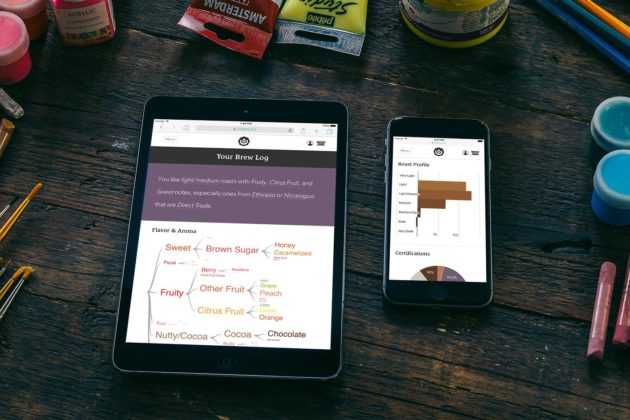Crema.co, the Seattle-based startup that coffee lovers should be buzzing about for more than one reason, has evolved beyond just being an online marketplace and now uses its technology to learn what kind of coffee you like.
On Tuesday, the company launched a “recommendation engine” that acts as a coffee sommelier, as Crema.co puts it, telling you what you might like to drink based on a deep understanding of your likes and dislikes.
Earlier this month, Cream.co made two other product announcements. On June 14, users gained the ability to rate coffee they ordered and tasted with either a thumbs up or thumbs down.
On June 21, the Brew Log was unveiled, using machine learning techniques to analyze the attributes in the coffees you like best. Flavors, aromas, roasting styles, origins and more are derived from a sensory lexicon of coffee and an improved flavor wheel.
Crema.co users can unlock the Brew Log after their third coffee order on the site. The more coffee you order and rate, the more Crema.co will learn about your palate.
“We chose an iterative approach because ratings, a snapshot of your coffee palate, and recommendations are each valuable in and of themselves, but magical when combined,” founder and CEO Tyler Tate told GeekWire.
“Our customers use ratings to keep track of what they did and didn’t like, while we use those ratings to help construct their Brew Log.
Customers enjoy tracking and exploring their coffee experiences with the Brew Log, while we use it to drive personalized recommendations.
They’re all interconnected and work together to deliver a seamless user experience.”
Crema.co got started in March 2015 with a successful Kickstarter campaign. More money was raised from angel investors and a beta was launched with more than 300 users last fall. The service officially went live on December 3.
Several months later, Tate said the Crema.co team still gets really excited by its efforts to transform coffee “from a commodity into a community.”
“For us, that means a focus on single-origin coffees and telling the stories of the farmers who produced them, and it means partnering with small, quality-obsessed roasters here in the U.S., many of whom have a hand-shake relationship with those farmers,” Tate said.
Kurt Schlosser


















